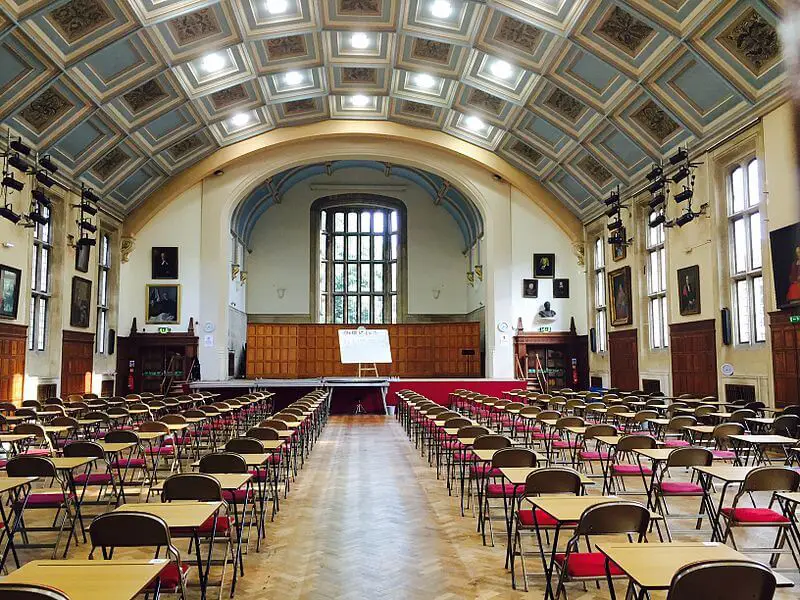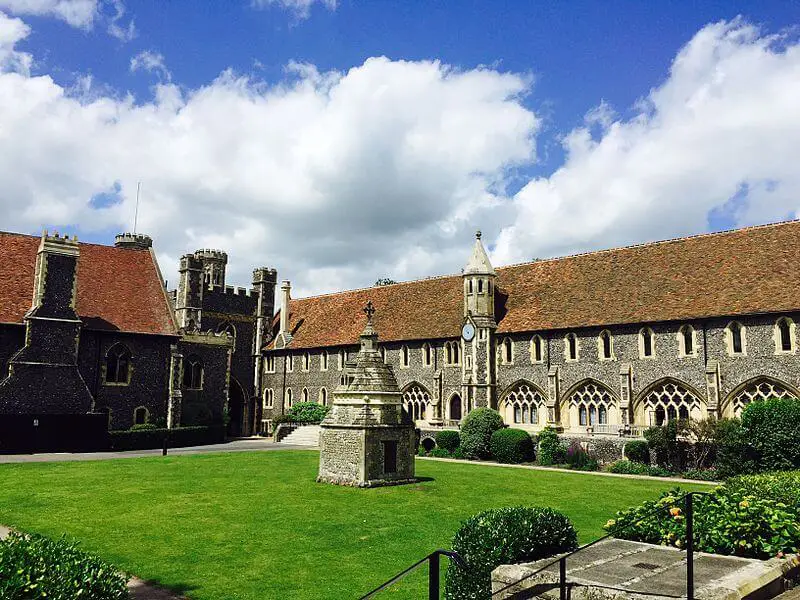Quiz Master's interesting facts
Situated in the historic city of Canterbury, England, The King's School stands as a tribute to the enduring quest for academic distinction, character nurturing, and an entrenched legacy of educational leadership spanning numerous centuries. With origins harking back to its inception in 597 AD, The King's School holds a revered position in the domain of educational establishments, epitomizing a heritage that intertwines a storied past with a dedication to contemporary learning.
The inception of The King's School is entwined with the establishment of the Canterbury Cathedral, an emblem of religious and cultural eminence. Archbishop Augustine of Canterbury initiated the school during the late 6th century in a setting dedicated to disseminating Christianity and fostering learning. This milestone marked a pivotal juncture in the chronicles of English education, setting the foundation for its impending prominence.
Across the mediaeval epoch, The King's School thrived as a hub of erudition. Its affiliation with the cathedral created a unique milieu where spiritual and scholarly pursuits converged. The curriculum revolved around Latin, theology, and philosophy, mirroring the intellectual inclinations of the era. As evidence of its historical significance, The King's School boasts the distinction of being one of the most enduringly operational schools in the English-speaking sphere.
The sway of The King's School extended beyond its confines, shaping both local and national narratives. Functioning as a cathedral school, it played a pivotal part in training clerics and ecclesiastical leaders. The school's reputation for scholastic rigor drew scholars and students from distant locales, adding to Canterbury's renown as a hub of erudition. Throughout centuries, The King's School navigated shifting educational paradigms while retaining its roots in fostering intellectual growth and character evolution.
One of the paramount epochs in The King's School's saga was the Reformation, an era defined by religious and cultural metamorphosis. The dissolution of monasteries and shifts in religious practices left a profound imprint on the school's curriculum and role within the community. Despite these tribulations, The King's School persevered, navigating the intricacies of the era to perpetuate its educational legacy.

The 19th and 20th centuries bore witness to substantial transformations at The King's School, mirroring wider changes in education and society. The school transitioned from an emphasis on classical studies to a more comprehensive curriculum encompassing modern languages, sciences, and humanities. This evolution aligned with the evolving educational panorama, preparing students for the exigencies of an increasingly interconnected global landscape.
Over this period, The King's School embarked on expansions, augmenting its physical footprint. Novel structures were erected, and facilities underwent modernization, providing students with an environment conducive to learning. The school's unwavering commitment to holistic development remained unwavering, as it strove to nurture not only academic prowess but also character, leadership acumen, and a sense of civic responsibility.
In the 21st century, The King's School remains steadfast in upholding its tradition of excellence while accommodating the exigencies of a swiftly changing world. The curriculum now spans an array of subjects, underscoring the institution's dedication to furnishing students with a comprehensive education that equips them for a diverse spectrum of career trajectories and global complexities.
Integrity, respect, and resilience continue to form the bedrock of character education at The King's School. The school underscores these values, equipping students with an ethical framework to navigate intricate moral predicaments. Extracurricular involvements, community service initiatives, and leadership prospects further contribute to the personal maturation and development of the students.
The commitment of The King's School to innovation is mirrored in its approach to technology integration and contemporary pedagogical methodologies. Harnessing digital resources, interactive learning platforms, and collaborative tools, the institution enhances the educational encounter while cultivating critical thinking, creativity, and adaptability.



